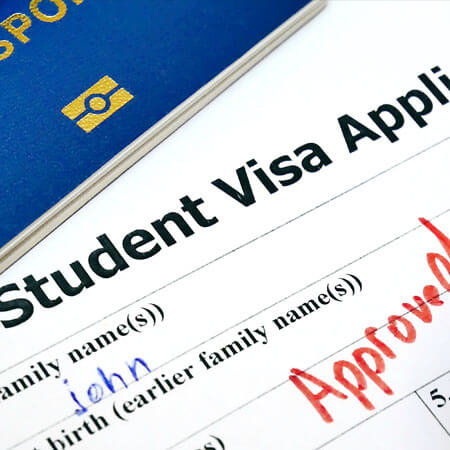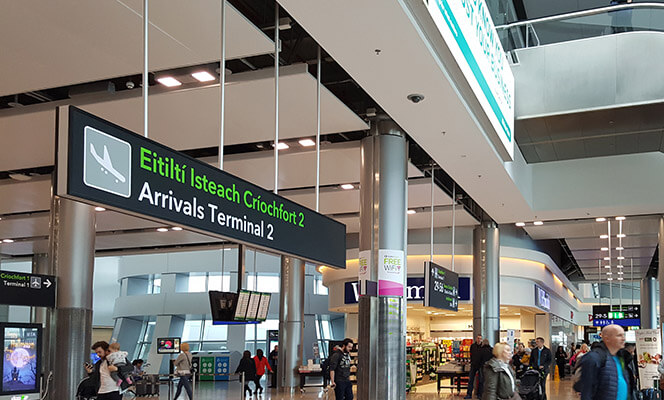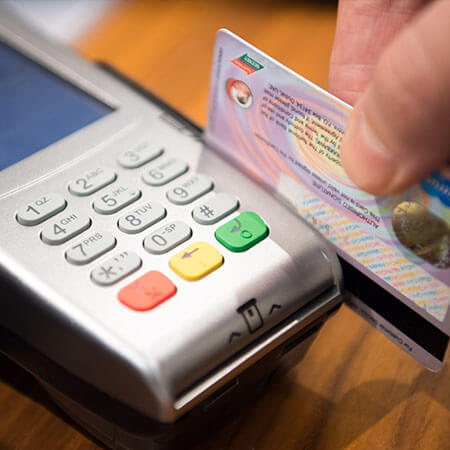
study
Student visas in Ireland
Top FAQ's around what you need to study in Dublin, including Visa application, how to apply for a visa and costs.
Dublin.ie – https://dublin.ie/study/plan-your-study/steps-to-studying-in-dublin/
Want to study in Dublin – or another part of Ireland? There’s a ton of reasons why you should. But, for international students, the process can be quite daunting. So, to keep your stress levels to a minimum, here’s our step-by-step guide containing everything you need to know about making it a reality.
There’s a ton of colleges, universities and other institutions where international students can study. (You can check out all your options here.) Investigate the courses that you’re interested in and make sure you meet the entry requirements.
It’s also a good idea to attend an open day, if you can. Alternatively, check the Education in Ireland website for upcoming events in your country. This will give you a chance to meet reps from Dublin’s different colleges and universities, so you can find one that works for you.
Once you’ve chosen a course, or two, apply as soon as possible. You may find our guide to qualification recognition helpful during this process – especially if you’re applying for a postgraduate position.
In most cases, you’ll be sent a letter of offer. You need to accept this to be officially enrolled in a course. Procedures vary from college to college, so make sure you’re familiar with the enrolment process at yours.
If you’re from outside the UK or the European Economic Area, you’ll have to apply for a student visa. You’ll also have to register with the Irish Naturalisation and Immigration Service within a month of arriving in Ireland. You’ll find more details on this in our guide to student visas.
International students arriving in Ireland are strongly advised to arrange health insurance cover for their stay in Ireland. Private medical care will ensure you have prompt access to doctors and hospital accommodation in the event of illness.
In fact, students coming to study in Ireland from outside of Europe may be required to purchase private health insurance as part of their visa. Sometimes proof of health insurance is even required during the application process.

Lots of airlines fly to Dublin and, with Dublin airport being the base for both Aer Lingus and Ryanair, there’s a good chance you’ll be able to bag a bargain. Although it’s still a good idea to book as early as possible.
If you’re coming from the UK or France, you could also consider travelling to Dublin by ferry. This will allow you to bring a lot more stuff with you!
Obviously, you’ll need your passport. If you plan to buy or rent a car, you’ll also need a driving licence. Either way, it’s always a good idea to bring proof of address with you, as you may need it to open a bank account.
European citizens should also bring their European Health Insurance Card with them, while non-EU students should carry the details of their private health insurance.
And, finally, students should bring along copies of their college acceptance letter and any past qualifications that may be requested by college admissions officers or future employers.

It can take some time to find student accommodation in Dublin. So start looking as soon as possible – especially if you’re after on-campus accommodation.
If you haven’t found a permanent place to stay before you arrive in Dublin, it’s easy to make temporary arrangements while you look for a home. On Homestay or Airbnb, you’ll find a room to let short-term. Hostels.com also has a comprehensive list of budget hostel accommodation in Dublin.
During the house search, your college or university should be able to provide advice on appropriate accommodation near campus.
Make sure you pay your tuition fees on time. Each college usually lays out specific timelines and requirements for you to follow, so make sure you’re aware of them.
You may need to open an Irish bank account to make these payments. This will come in handy for other payments too.
Everyone in Dublin speaks English. But there are a few phrases that might require a bit of translation. For example, ‘grand’ means ‘okay’. And ‘story?’ means ‘what are you up to today?’.
Both of these terms are used by Irish people on a daily basis. But that’s just the tip of the iceberg. We’ll let Dublin-based comedy trio Foil Arms & Hog give you the full rundown.
It looks like you’re all set! Have a safe trip and keep an eye out for the Poolbeg Towers on your descent into Dublin. They’re the pair red-and-white striped towers at the edge of Dublin Bay and they’re much beloved by the locals.
Once you’ve landed, check out our arrival guide for international students.

Top FAQ's around what you need to study in Dublin, including Visa application, how to apply for a visa and costs.

Dublin is a great place to study and its universities welcome students from across the world. But how much are the tuition fees in Ireland? Most universities and institutions of higher learning have at least two parts to their fee structure – tuition and the student contribution. Tuition fees cover your learning in class, while the student contribution covers student services and examinations. The maximum rate for the student contribution right now is €3,000. Fees are competitive, particularly when compared to those of universities in the UK. On average, tuition in

Your first days in a new city can shape your overall experience. With that in mind, here’s a short checklist of things to do shortly after you arrive. Ticking them off will help you have a fun and hassle-free time in your new city.